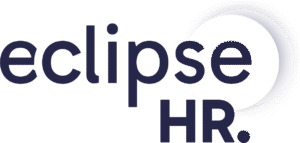 https://www.eclipsehr.uk/wp-content/uploads/2025/06/pexels-pixabay-256491-1-500x333.jpg
https://www.eclipsehr.uk/wp-content/uploads/2025/06/pexels-pixabay-256491-1-500x333.jpg
Handling Staff Disputes in Schools
Read more
by Rebecca Lister |
Article Summary
Getting a cancer diagnosis can be an extremely stressful part of someone’s life but having the right support in place can help ease this. This article on Cancer and Working Guidelines for Employers explains how employers and colleagues can support employees with cancer through their diagnosis and treatment by showing empathy and compassion in the working environment, as well as explores the legal obligations employers have. Learn how Eclipse HR can offer tailored advice for your company’s needs, offering strategic advice for managing employees with confidence and care.
Getting a cancer diagnosis can be world-altering for anyone and can have far-reaching effects on those around them. It is estimated that every two minutes someone in the UK is diagnosed with cancer.
This is an astounding figure, and as more and more people live and work through cancer treatment and recovery, it is crucial that employers understand how they can best support their employees by fostering a compassionate, flexible and supportive work environment. How employers respond can significantly impact an employee’s well-being and recovery.
When an employee shares their cancer diagnosis with an employer, the first response should be one of empathy. Understanding your employee’s cancer journey is essential to offering meaningful support during a challenging time. Demonstrating kindness, flexibility and support doesn’t just help the individual but also reinforces your organisation’s culture and ethos.
It’s important to acknowledge not only your legal responsibilities, but also the practical needs of the person with cancer. Signposting to trusted organisations such as Macmillan Cancer Support can connect people with cancer to valuable support groups, financial advice and tailored resources.
Employers should be aware of the employment rights at work that protect staff during and after treatment, including the ability to request temporary changes such as flexible hours, role adjustments or phased returns. Recognising and acting on these needs is not just best practice – it’s a vital part of creating a compassionate, compliant workplace.
Under the Equality Act 2010, which replaced the Disability Discrimination Act, it is unlawful to discriminate based on the following nine characteristics: Age, Disability, Gender Reassignment, Marriage and Civil Partnership, Pregnancy and Maternity, Race, Religion or Belief, Sex or Sexual Orientation.
The Act provides protection for any individual who has a physical or mental impairment that has a significant long-term, negative effect on their ability to carry out day-to-day activities.
Under the Act, a cancer diagnosis automatically qualifies an individual for protection on the grounds of disability, which is a protected characteristic under the Equality Act 2010. It is unlawful to discriminate against a worker for this reason.
To treat someone less favourably because they have cancer would amount to discrimination. This includes protection from being denied promotions, training opportunities or being subjected to unfair treatment, including a biased redundancy process.
Legal protection against discrimination does not end when cancer treatment finishes. Individuals continue to have legal protection against discrimination even when they are in remission.
Employers are required to consider reasonable adjustments to accommodate the individual’s needs, such as changes to working hours, tasks, or the workplace itself; and to better support their ability to carry out their role.
Should an Employment Tribunal decide an employer’s actions amounts to discrimination, the employer can be liable for damages (with no statutory maximum limit in place).
The Act protects against both direct and indirect discrimination. Direct discrimination, the type that perhaps first comes to mind, is when someone is treated less favourably because of a protected characteristic. Examples of this can include not offering someone a job because they have cancer or dismissing them for a reason related to having cancer.
Indirect discrimination is when a particular policy, working practice or rule is the same for everyone but has a worse effect on some people because of a protected characteristic. Examples of this could be using sickness absence as a deciding factor for redundancy purposes and including any absences due to cancer.
Supporting an employee through a cancer diagnosis requires more than just empathy- it demands clarity and compliance. Speak to an Eclipse HR consultant today to get expert advice tailored to your workplace and responsibilities.
Employees are under no legal obligation to tell their employer if they have a cancer diagnosis. This includes while undertaking interviews. However, be that as it may, it may be difficult for employees to gain the support they may need if their employer is unaware of their condition.
For employers to be under a duty to make reasonable adjustments, they must be made aware of the disability by the individual or must be reasonably expected to know.
Individuals have the right to have personal information, in particular sensitive information, kept private. This includes medical information. This is a right enshrined under the Human Rights Act (1998); The General Data Protection Regulation (EU) 2016; and in the UK, data protection is governed by the UK General Data Protection Regulation (UK GDPR) and the Data Protection Act 2018.
The Access to Medical Reports Act 1988 means that employers must ask for permission from individuals to request a medical report on their health from their doctor or other health professionals, including an Occupational Health (OH) referral.
Individuals have the right to ask for and see the report before it is released and refuse permission for their employer to request a medical report if they wish so.
Employers have a duty of care to ensure the health, safety and well-being of their employees and should take reasonable steps to accommodate their needs.
A risk assessment for an employee with cancer aims to ensure a safe and supportive environment by identifying and mitigating risks related to their illness and treatment. This involves evaluating job demands, the employee’s specific cancer and treatment, their work environment and potential reasonable adjustments. The goal is to make reasonable adjustments to help the employee stay in or return to work, while also protecting their health and wellbeing. An effective risk assessment will:
Employers have a duty to ensure reasonable adjustments; changes which remove or reduce any disadvantage arising from an individual’s disability are in place to provide support and assistance.
Under the Equality Act, employers must make these adjustments when a certain practice or provision or a physical feature of the workplace or the lack of aids is likely to have the effect of putting an individual who is considered to be disabled under the Act, including those with a cancer diagnosis, at a substantial disadvantage in comparison with other individuals who do not have a disability.
Reasonable adjustments could include finding a different way to carry out a task, making changes to the workplace, changing someone’s working arrangements, providing equipment, services or support.
What is “reasonable” may depend on the needs and circumstances of each individual, the costs involved and the resources available to the employer but ensuring you are engaging in discussions and looking into ways you can make any practical changes ensures an employer is upholding their duty.
Employees have the right to request flexible working from day one of employment and employers are under a duty to consider requests in a reasonable manner and can only refuse if it can be shown that one of a specific number of grounds apply. For people who have just received a cancer diagnosis, flexible working arrangements may be a good way for organisations to support them.
Flexible working practices include:
Flexible working has been shown to reduce absence rates and allow employees to manage disability and long-term health conditions, as well as supporting their mental health and stress.
The Carers Leave Act 2023 also provides carers, those who are balancing unpaid care with paid employment, with the right to take up to one week of unpaid leave each year to provide or arrange the care of a dependent with a long-term care need. This right applies from the first day of employment.
For employees balancing work and caring for someone with cancer, this can be a very stressful time. Ensuring organisations have support available can go a long way in protecting staff wellness and wellbeing.
Here at Eclipse HR, our expert HR consultants can help you interpret and apply Cancer and Working Guidelines for Employers in a way that reflects your organisation’s values and legal obligations.
We have years of experience across a variety of sectors and are best placed to provide you with the information and advice you need tailored to your organisation.
Whether you are looking for guidance on how best to support an employee going through a cancer diagnosis or are looking to update HR policies in light of this, contact us today.
For more information on Cancer and Working Guidelines for Employers, get in touch to speak to a member of our team today, or please feel free to explore our website to learn more about the HR services we provide in Kent and the South East.
Author: Rebecca Lister
Rebecca supports the Eclipse HR team and our clients across a range of tasks. Alongside her role, she is studying for an Integrated Masters in Advanced Legal Practice (MLaw) at the University of Kent. Her academic focus, particularly in employment law, complements her practical experience and deepens her understanding of HR in action.
Disclaimer: Information and reference materials included within Eclipse HR Limited articles and blogs are provided free of charge and for reference purposes only. They are not intended as a substitute for legal advice, or professional or other advice in regards to specific circumstances. Whilst every effort is made to ensure the contents are correct on website publication, they should be considered for guidance purposes only.
 https://www.eclipsehr.uk/wp-content/uploads/2025/06/pexels-pixabay-256491-1-500x333.jpg
https://www.eclipsehr.uk/wp-content/uploads/2025/06/pexels-pixabay-256491-1-500x333.jpg
Read more
 https://www.eclipsehr.uk/wp-content/uploads/2026/02/StockSnap_N3DP51WC97-1-500x333.jpg
mediation employment law
https://www.eclipsehr.uk/wp-content/uploads/2026/02/StockSnap_N3DP51WC97-1-500x333.jpg
mediation employment law
Read more
 https://www.eclipsehr.uk/wp-content/uploads/2024/07/office-8748036_1280-500x333.jpg
What is Workplace Mediation and Why Might You Need It
https://www.eclipsehr.uk/wp-content/uploads/2024/07/office-8748036_1280-500x333.jpg
What is Workplace Mediation and Why Might You Need It
Read more
Please get in touch using the form below.

Free Webinar: Employment Rights Act 2025
The biggest update to UK employment law in a generation is here, with key changes starting from April.
Join Whitehead Monckton and Mid-Kent College for a free breakfast seminar to
understand what’s changing and what employers need to do now to remain compliant.
Tuesday 17 March, 8.00am -10.30am